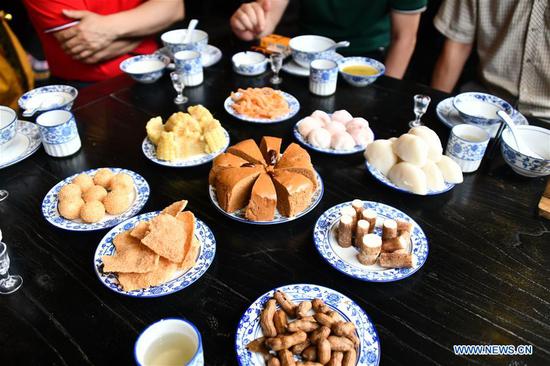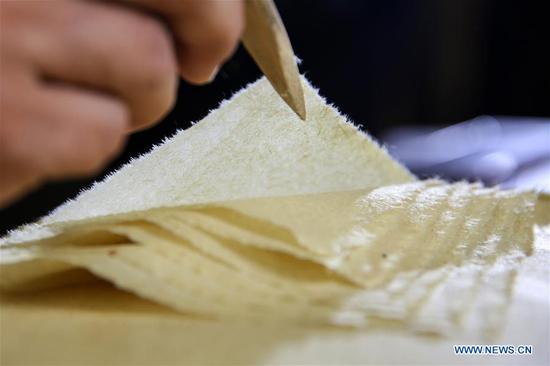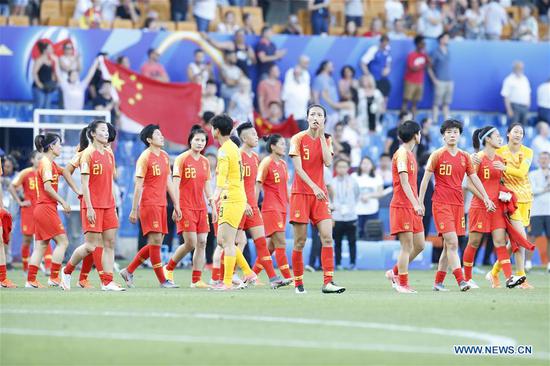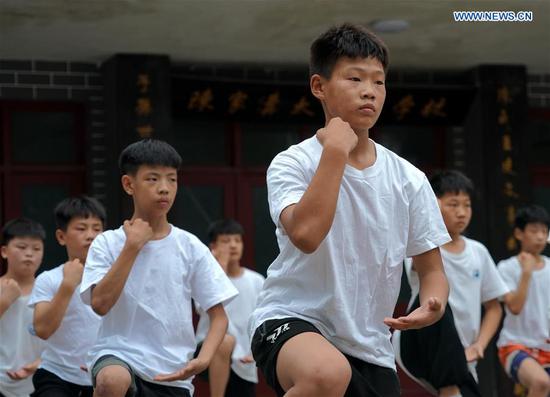Commerce Ministry says Washington should lift its curbs on Chinese firms
China on Thursday urged the United States to cease its wrong practices and resolve existing problems through dialogue and cooperation on an equal footing with China.
This came as 96 percent of 314 business representatives stated their opposition to the U.S.' proposed tariffs on $300 billion worth of Chinese goods. They testified during hearings in Washington, which concluded on Tuesday.
Gao Feng, spokesman of the Ministry of Commerce, said the U.S. side should listen carefully to the voices of the industry and end its wrong practices.
The U.S. side should address problems through equal dialogue and cooperation with China, which is in the interest of the two sides and the rest of the world, Gao said at a regular news conference.
He said that China also urges the U.S. to immediately lift the measures that contain and sanction Chinese companies, in order to promote the steady and healthy development of China-U.S. economic and trade relations.
China and the U.S. have been locked in a trade dispute for months, exchanging hefty tariffs on each other's imports.
After reaching an impasse, negotiators agreed on Monday to resume their consultations. Top leaders of the two countries are expected to meet during the G20 summit in Japan.
Geng Shuang, spokesman of the Foreign Ministry, said China has always called for resolving trade tensions with the U.S. through dialogue and consultation, but it will firmly safeguard its own legitimate interests.
U.S. threats to impose more tariffs on Chinese imports cannot intimidate the Chinese people, Geng added.
Gao said China's stance toward tariffs is clear, that the country has always opposed unilaterally imposed tariffs. "The U.S. trade bullying eventually hurts its own businesses and consumers," he said.
The "unreliable entities" list-a blacklist of foreign parties that, for noncommercial reasons, harm the interests of Chinese companies, will be released soon, Gao said. Companies that abide by Chinese law and the spirit of contracts have nothing to worry about, he said.
Zhou Mi, deputy director of the Institute of American and Oceania Studies of the Chinese Academy of International Trade and Economic Cooperation, said it is necessary for China to push forward with the list of "unreliable entities," and export restriction measures.
"These moves will bring about institutional improvement," Zhou said. "They are not meant to punish any company, but to guide all market entities to abide by the laws, regulations and commercial contracts. They can further level the playing field for both homegrown and foreign companies."
In a recent survey, a majority of U.S. and Chinese consumers expressed strong support for bilateral trade due to a belief that both countries benefit from the exchange of goods, said Mei Yan, senior partner and China chair at advisory firm Brunswick Group.
The online survey was conducted among 1,000 U.S. consumers and 1,000 Chinese consumers in early June.


















































